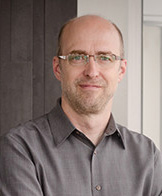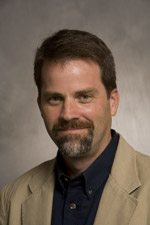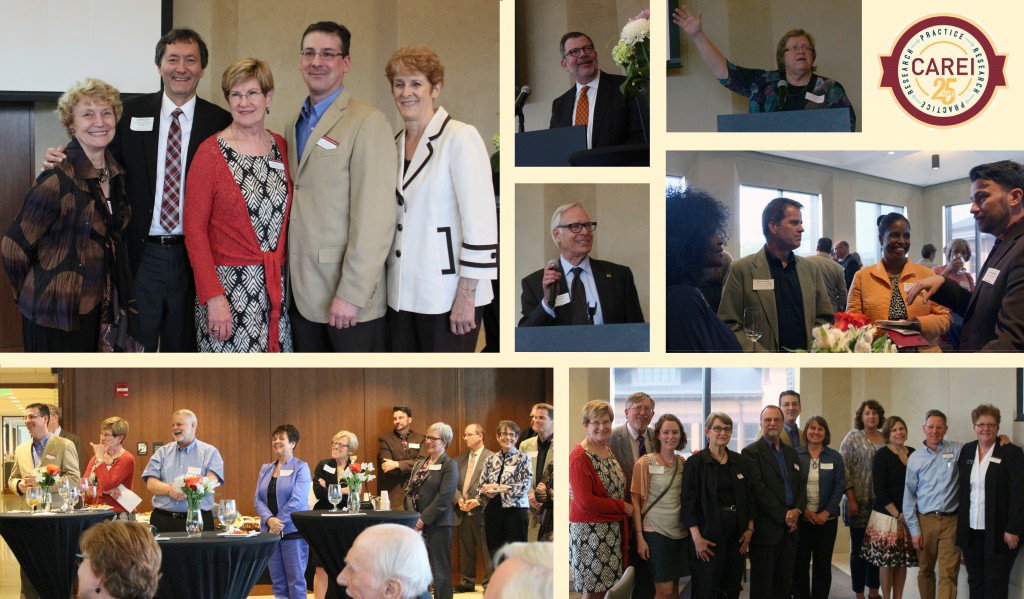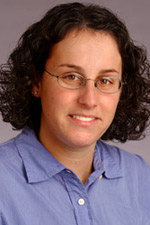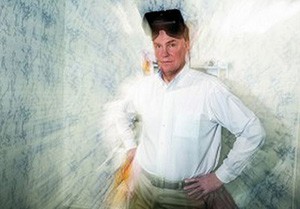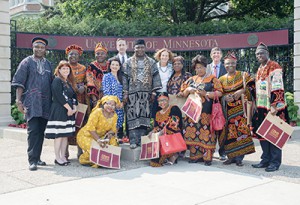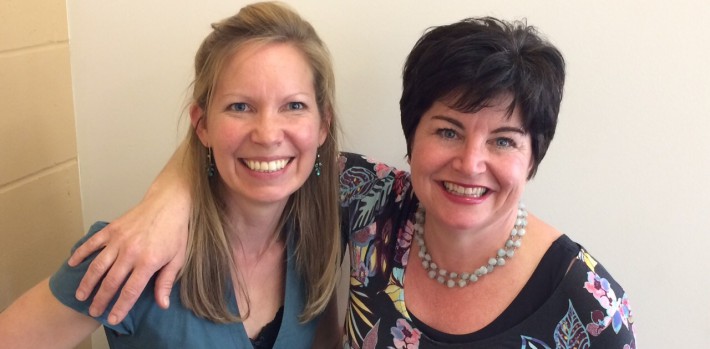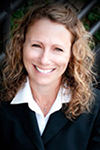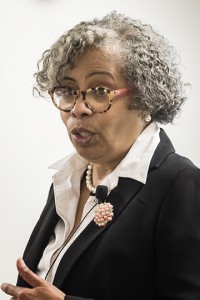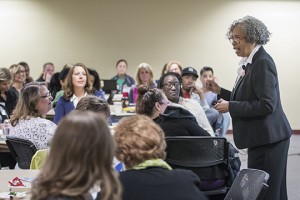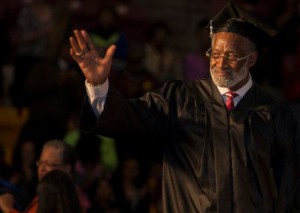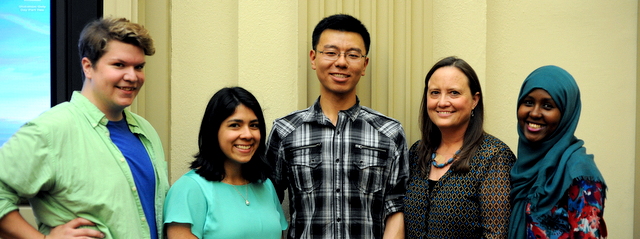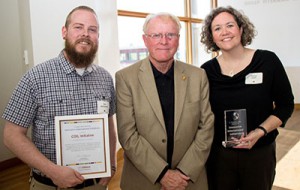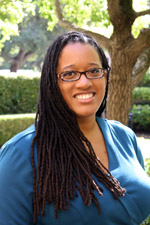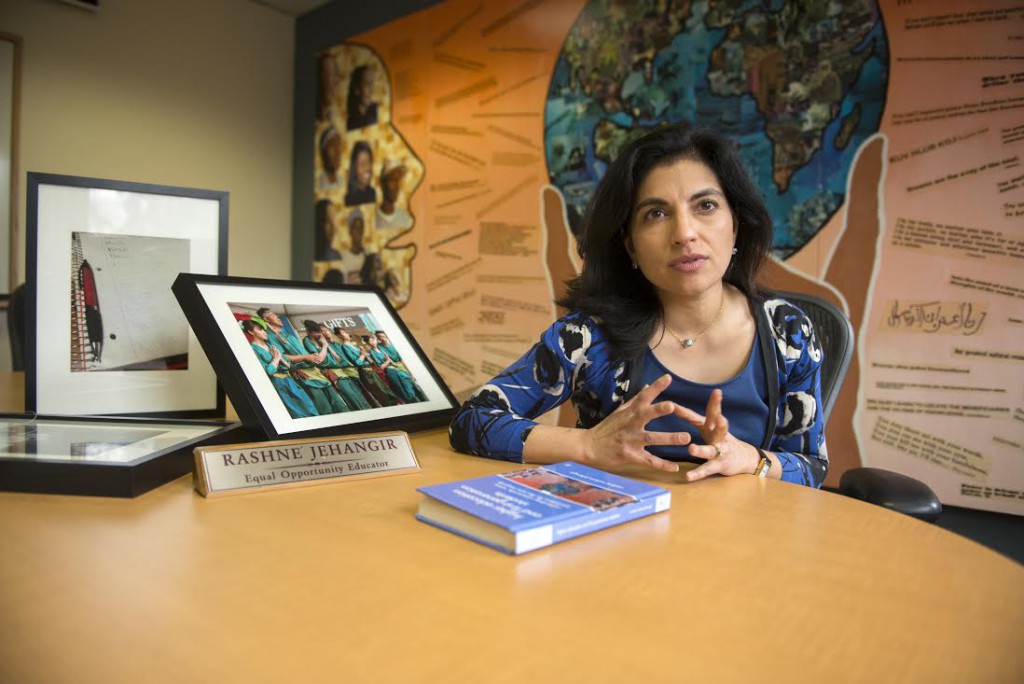
“Where are you from?” “Where did you grow up?”
When Rashné Jehangir recalls questions she’s been asked throughout her adult life, her voice shifts. Her signature energetic cadence slows, and her passionate timbre softens to a reflective curiosity as she envisions the inquirer’s mindset.
Born and raised in Mumbai, India, Jehangir first encountered similar questions as a freshman in Wisconsin. Her early experiences in Lawrence University’s freshmen studies program shaped an interest in interdisciplinary learning, where student and faculty could be co-learners in the classroom.
Now an associate professor in the Department of Postsecondary Teaching and Learning (PsTL), Jehangir’s lived experience nurtures a deep appreciation for the students she teaches and also fuels her research focus.
“I have an understanding of what it means to be an outsider in different ways,” she says. “The idea of not quite fitting in, and having to figure that out—this is where I feel really connected with students.”
Jehangir is committed to cultivating classroom communities where students can grapple with and interrogate big questions and learn from the lived experiences of others. Students feel connected to her, as well.
“I credit Rashné for being my academic fairy godmother,” says former student Kafia Ahmed, “seeing something in me I couldn’t yet see in myself—a capable and dynamic young woman.”
“The class I took with Rashné was one of the most memorable because she focused on creating a community in the classroom, and fostered open discussions about difficult topics like race, colonialism, and structural oppression,” says former student Abigail Schanfield.
Creating moments of advocacy and agency is central to Jehangir’s teaching philosophy. Helping students—especially students who are first in their families to attend college—recognize the strengths they bring to the academy while reinforcing their aptitude for walking in multiple worlds is a driving force for her. This year, she became a recipient of the University’s highest teaching honor, the Morse-Alumni Teaching Award.
“Our job is to help them translate strengths—that’s where the deep, ‘heart work’ is involved,” says Jehangir. “There is head work, and there’s heart work—both intellectual and relational.”
From career counselor to the classroom
Teaching came to Jehangir through a chance opportunity. She began her career as a counselor advocate in the University’s TRIO program at a time when Bruce and Sharyn Schelske were creating learning communities for students in the program. Bruce invited her to teach a one-credit class, and the experience shifted the entire trajectory of her career and her life.
“Once I was in the classroom I thought, ‘This is what I’m supposed to do’,” Jehangir remembers.
Her class was linked to another taught by LeRoy Gardner, Jr., that explored multicultural relations and relationships, specifically race, class, and gender issues in the United States.
“The types of conversations, the types of reflections on identity of self and others we were able to have [in the classroom] was unbelievable,” she says. Realizing these were the conversations and questions she wanted to explore as a teacher and researcher, Jehangir began pursuing her Ph.D. while working full time in TRIO. Her dissertation work was built around creating learning communities with seasoned faculty members Patrick Bruch and Patricia James.
“We had different languages from a disciplinary perspective,” says Jehangir. But the three established powerful points of connection: Identity, community, and social agency were the three themes that bound their work. Through experimentation, their curriculum included capstones of theater performances and class-driven murals, some still on the walls of Burton Hall.
Those early learning communities served as a springboard to her leadership role in developing CEHD’s successful interdisciplinary First Year Experience Program.
“It was a really joyous, challenging, messy time,” she says, reflecting on the work in which she and her PsTL colleagues engaged to design the program. “I think that’s as it should be when there is space to be creative and innovative about pedagogy.”
The power of story
As a qualitative researcher, Jehangir’s well-known and highly regarded work examines the stories and experiences of first-generation students, many of whom are also immigrants and people of color. Their narratives unlock the potential for understanding and advocacy, and she is reverent in maintaining the authenticity of their voices.
“They are in essence giving you the power to tell their story in a way that can influence agency, whether it’s changing how people see first-generation students, or changing how counselors work with first-generation students, or changing policies that might exist.”
This commitment to untold stories forms the basis of Jehangir’s own first-year curriculum, where students read diverse narratives examined from historical, sociological, and literary frames. In one early assignment, she invites students to explore personal narratives through a biographical object, asking students to reflect on and publically share an object that represents their experiences and identities. She participates in the assignment, too—“If they’re going to do it, I’m going to do it,” she says, referring to a practice embedded in her teaching since her work with James and Bruch.
Jehangir’s biographical object is handwritten letters from her father, scripted in fountain pen on white paper. Received during her undergraduate years in Wisconsin, the letters forged a connection and bridged the geographical divide.
“My father was a great storyteller and he was really unconventional and funny and irreverent,” she says. “I had the kind of dialogue with him in letters that I probably would never have had if I had gone to college at home.
“He wrote letters like stories, so I could picture things at home that I missed,” she continues. “They carried my history with me, and they were tactile in that I could smell a little bit of home in them.”
Jehangir keeps the treasured letters within reach of her office chair, knowing they contain the grace, humor, and strength of her father, who passed away shortly before she graduated from Lawrence.
“The capacity to laugh at yourself, but also honor who you are and where you came from, all of that is in those letters,” she says.
As a teacher and researcher, Jehangir helps students honor who they are and where they came from, while avidly paving support for where they hope to go.
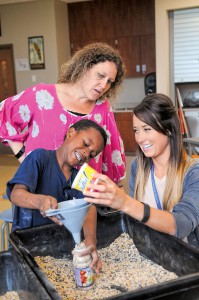 Minnesota’s teacher shortage in special education is serious and growing. That’s why local school districts reached out to the University of Minnesota’s College of Education and Human Development for help.
Minnesota’s teacher shortage in special education is serious and growing. That’s why local school districts reached out to the University of Minnesota’s College of Education and Human Development for help.

